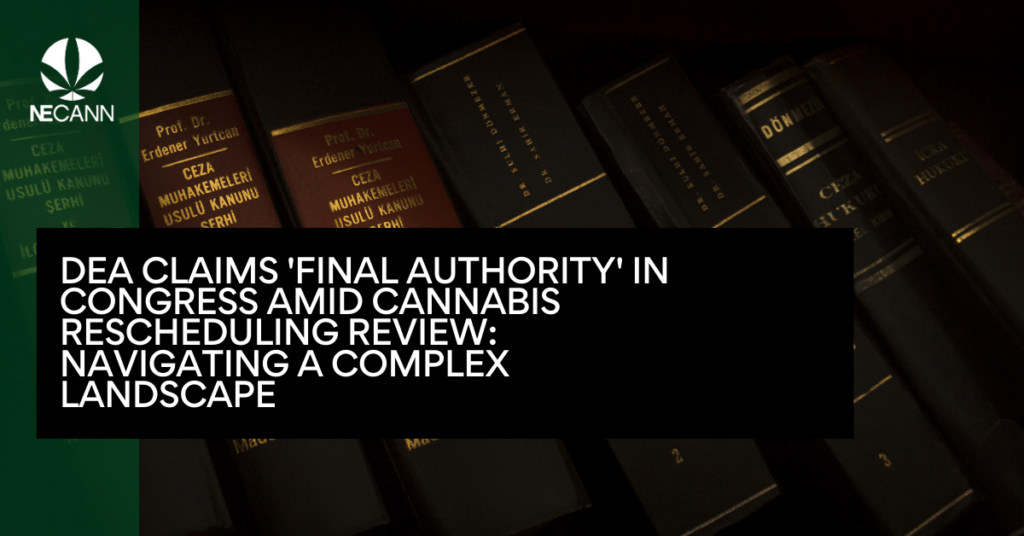A recent letter to Congress, published by Punchbowl News, revealed a bold assertion from a representative of the Drug Enforcement Administration (DEA) regarding the agency’s “final authority” on decisions related to the status of cannabis under the Controlled Substances Act. This proclamation adds an intriguing layer of complexity to the ongoing efforts aimed at reshaping federal cannabis policies, particularly as the DEA conducts a comprehensive review of the classification of marijuana.
DEA’s Firm Stance and the Ongoing Rescheduling Review:
The DEA’s assertion of ultimate decision-making power comes at a crucial juncture as the agency undertakes a review of the federal classification of cannabis. This review was prompted by a recommendation from the Department of Health and Human Services (HHS) advocating for the reclassification of cannabis to a less restrictive Schedule III. Such a move would signal a significant shift in perspective, recognizing the potential medical benefits of cannabis and a reduced likelihood of abuse.
Despite the HHS’s recommendation, the DEA has chosen to maintain a secretive stance, refraining from disclosing a clear position or providing a timeline for its decision. The lack of transparency has fueled frustration among lawmakers, advocates, and the public, especially as public support for cannabis legalization reaches unprecedented levels, as indicated by a recent Gallup poll.
Calls for Alignment with Evolving Public Opinion:
In response to the DEA’s opaque approach, lawmakers, including Rep. Earl Blumenauer of the Congressional Cannabis Caucus, have urged the agency to align its stance with the shifting tide of public opinion. With growing support for cannabis legalization within Congress, critics argue that the DEA should adopt a more progressive approach in tune with changing attitudes toward cannabis.
The Enigmatic HHS Rationale and Uncertain Outcome:
Adding another layer of complexity to the situation is the secretive nature of the HHS’s recommendation, with only heavily redacted documents made available to the public. While historical precedent suggests that the DEA may follow the HHS’s recommendation, the current lack of transparency leaves the outcome uncertain.
Significance for Federal Policy Reform:
As the debate unfolds, stakeholders across the cannabis landscape are eagerly anticipating the DEA’s decision. The outcome holds the potential to significantly influence federal cannabis policies and shape broader reform efforts in the United States.




